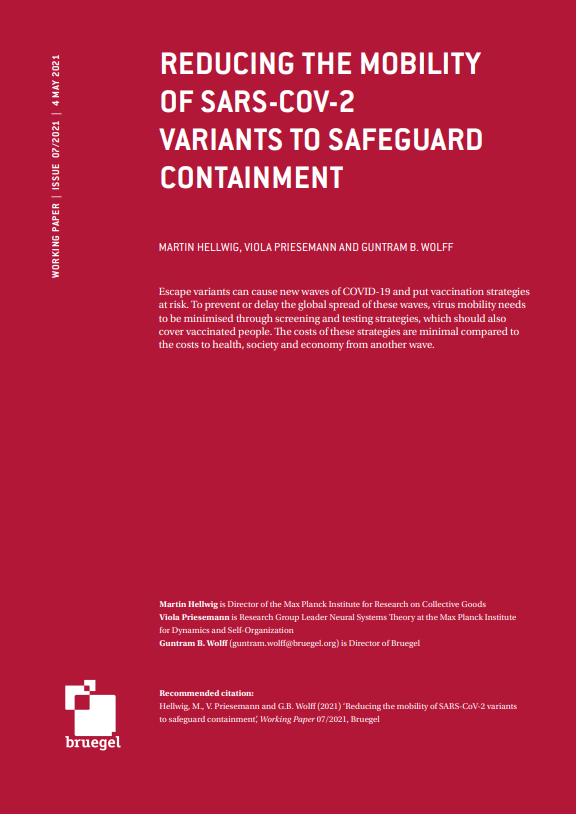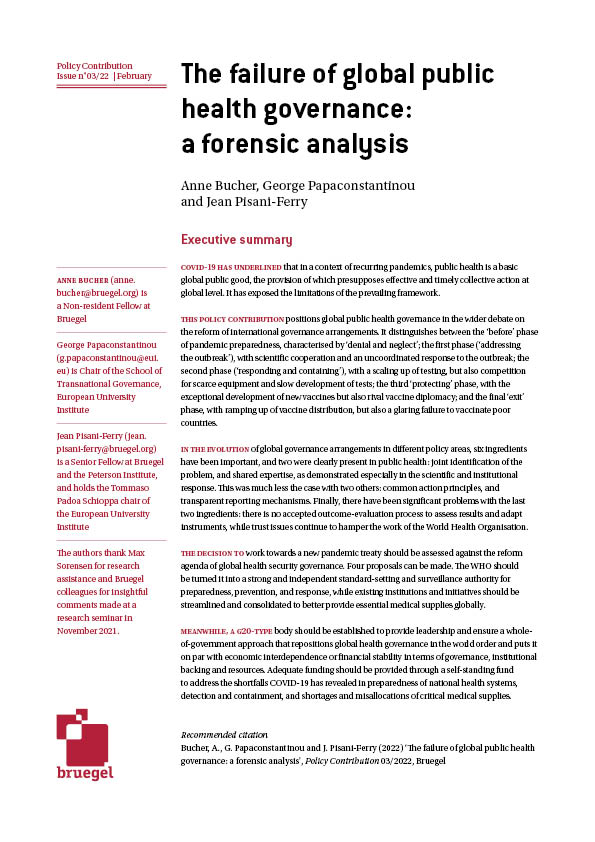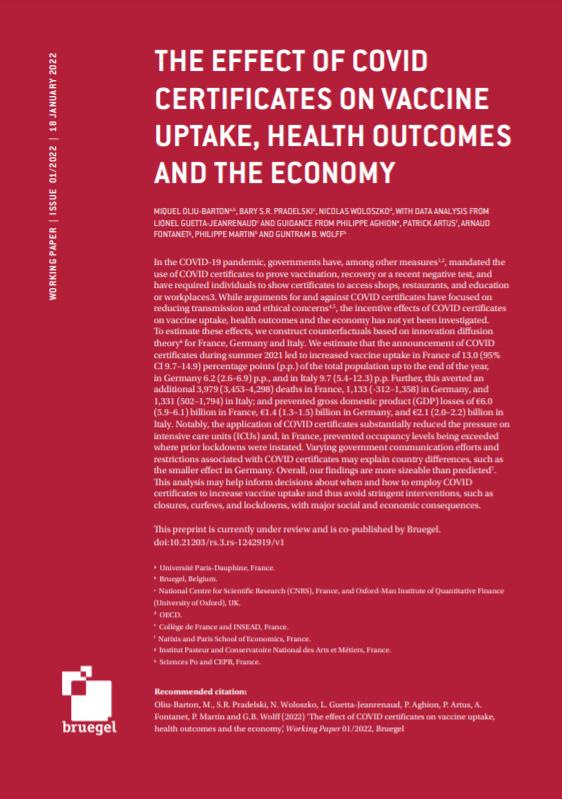Working Paper
Reducing mobility of SARS-CoV-2 variants to safeguard containment
Escape variants can cause new waves of COVID-19 and put vaccination strategies at risk. To prevent or delay the global spread of these waves, virus mobility needs to be minimised through screening and testing strategies, which should also cover vaccinated people. The costs of these strategies are minimal compared to the costs to health, society and economy from another wave.
When the coronavirus pandemic started in 2019/2020, a number of countries reacted early, closing down public life and reducing private contacts before contagion fully took off. Countries that failed to do this saw large spikes in cases, stretching or overwhelming their medical capacities. Likewise, countries that ignored warning signals of a second wave were hit hard in autumn 2020. A third wave, caused by the more contagious B.1.1.7 SARS-CoV-2 coronavirus variant, has unfolded. This variant was first recognised in Kent, United Kingdom, from where it spread quickly across the UK and beyond. It spread to countries with more travel to the UK earlier than others. Germany was affected relatively late while Portugal and Ireland were affected early because of more intensive travel links. Another variant, P1, is also spreading rapidly in Brazil and countries with strong travel connections to Brazil, such as Chile.
People travelling play a central role in spreading new variants of SARS-CoV-2, with devastating consequences. Stopping a new variant from entering from abroad, or at least slowing it down, would facilitate containment and limit the human, social and economic costs. The experience with B.1.1.7 shows how slower entry of a variant to a country delays the deterioration of the health situation and the introduction of strict and costly lockdowns.
Public policy in advanced economies is focusing on vaccination in the hope this will bring down the number of severe cases and deaths while allowing restrictions to be lifted (Dagan et al, 2021). By the end of 2021, large parts of the populations of Israel, Chile, the US, the UK and the EU will have received the vaccine and will be largely immune to the wild strain and some variants of COVID-19.
Recommended citation:
Hellwig, M., V. Priesemann and G.B. Wolff (2021) ‘Reducing the mobility of SARS-CoV-2 variants to safeguard containment’, Working Paper 07/2021, Bruegel












